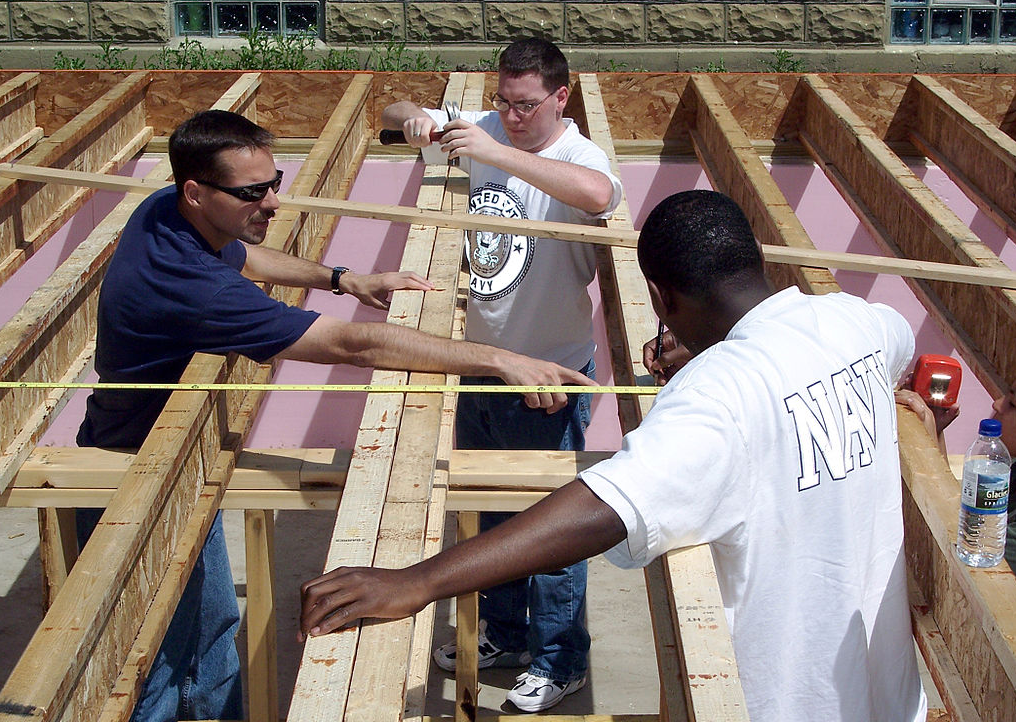The other day a friend of mine received some good-natured ribbing over the fact that he had to call a repairman to fix something at his house rather than do it on his own. The incident produced some laughs, but I came away thinking that he was completely justified in his need to call a repairman. For better or for worse, many in recent generations have never been taught how to handle household repairs on their own.
Some schools, however, are making an effort toward changing that. Certain high schools – spanning from Massachusetts to Minnesota to Idaho – have recently been giving their students a crash course in building houses. These home building projects enable students to learn how to do everything from framing a house, to wiring an outlet, to performing finishing touches such as woodwork. According to those involved in the Minnesota building project:
“This education includes working closely with people like Jeff Brown, owner of Granite Ledge Electrical Contractors.
‘We send a foreman and a project manager out for about six days,’ Brown said. ‘We work hand-in-hand with the students teaching them codes and techniques. We play more of a supervisory role and have them do the installation.’
In most high school student building projects, [course instructor] Vesledahl said contractors like Brown would come in and do the work for the students. But at Milaca, students learn from and work alongside electricians, plumbers and heating installers.”
According to the course instructor, such hands on experience enables students to see that there are other post-high school options besides college:
“‘My personal goal is to give the students a chance to explore all aspects of the trades,’ he said. ‘(Students) are academically driven to get that four-year degree. But that’s not the avenue everyone takes. And it’s nice to let these kids know that you don’t have to go to school to get a good-paying career. You can make a great career out of any of the construction trades.’”
But the experience students get in these hands-on courses is not only resume-building; it also gives students basic skills they can carry into life even if they eventually go to college and end up in a white collar type of job. As one student explains:
“‘If an outlet is bad, you know how to fix it instead of paying someone to do it. You know how to shingle,’ [Zach] Korvela said. ‘It’s about learning how to do things (for yourself).’”
Knowing how to perform basic skills on one’s own is certainly lacking in today’s society. Is it time more schools sought to implement hands-on building courses like these in the curriculum?
Image Credit: Public Domain
















Leave a Comment
Your email address will not be published. Required fields are marked with *